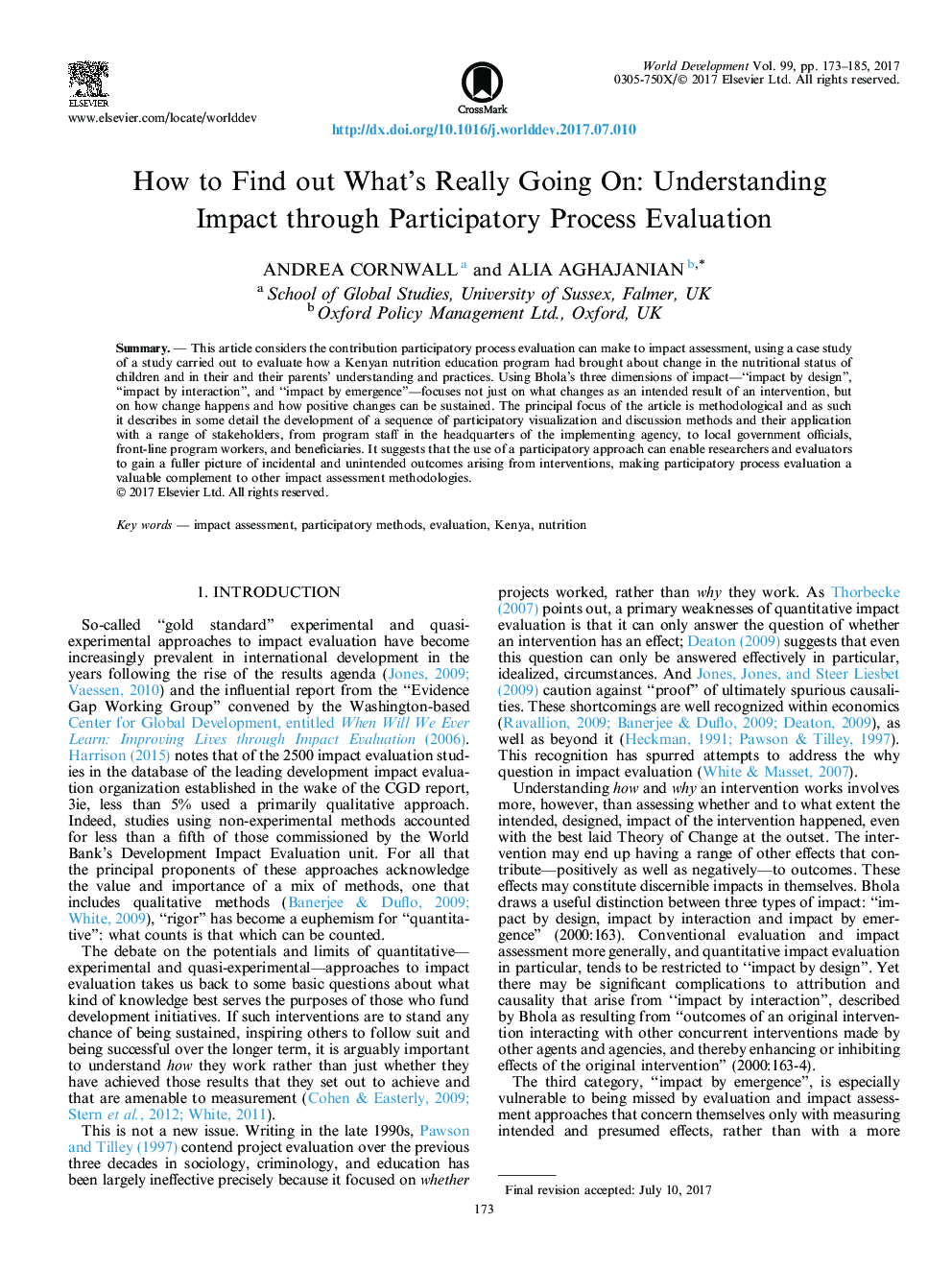| Article ID | Journal | Published Year | Pages | File Type |
|---|---|---|---|---|
| 5105098 | World Development | 2017 | 13 Pages |
Abstract
This article considers the contribution participatory process evaluation can make to impact assessment, using a case study of a study carried out to evaluate how a Kenyan nutrition education program had brought about change in the nutritional status of children and in their and their parents' understanding and practices. Using Bhola's three dimensions of impact-“impact by design”, “impact by interaction”, and “impact by emergence”-focuses not just on what changes as an intended result of an intervention, but on how change happens and how positive changes can be sustained. The principal focus of the article is methodological and as such it describes in some detail the development of a sequence of participatory visualization and discussion methods and their application with a range of stakeholders, from program staff in the headquarters of the implementing agency, to local government officials, front-line program workers, and beneficiaries. It suggests that the use of a participatory approach can enable researchers and evaluators to gain a fuller picture of incidental and unintended outcomes arising from interventions, making participatory process evaluation a valuable complement to other impact assessment methodologies.
Related Topics
Social Sciences and Humanities
Economics, Econometrics and Finance
Economics and Econometrics
Authors
Andrea Cornwall, Alia Aghajanian,
